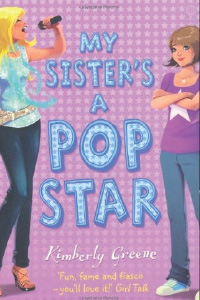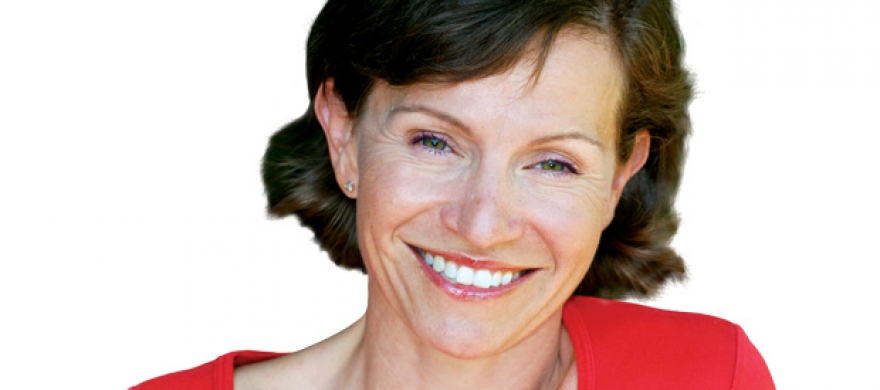The Multimedia Maven
Kimberly Greene (MA ’93, EdD ’99) integrates media, technology, and education to create meaningful experiences for diverse audiences.
As an intern at Late Night with David Letterman, Kimberly Greene got to know the writers atSaturday Night Live and became fascinated by the discussions they would have about “Weekend Update,” the show’s satirical newscast. When conversations turned from pop culture to politics, Greene noticed a marked shift from light banter to biting snark.
“I started recognizing how everybody’s different educational backgrounds sometimes allowed us to see things through such different perspectives when talking about current events,” recalls Greene, then a student of fine arts at NyU. She also noted a disparity between east- and west-coast thinking and the midwestern sensibilities she embraced growing up in Iowa. “We could joke about the same pop culture references—the one thing we shared in common—but when we were talking about, particularly, the news, the differences in education shocked me.”
She thought that if the public could harness the power of pop culture and media, they could do more to help people better understand what’s going on in the world. “Why does it have to be so snarky?” she asked herself. “Why can’t it be used for good?”
In her educational technology doctoral program at the Graduate School of Education and Psychology, Greene found the tools to bridge the gap between media and education and to ensure that the messaging being delivered to the public was utilizing technology in a more empowering and relevant fashion—a concept and skill set that was, at the time, not yet recognized.
Upon learning about Pepperdine’s educational technology doctorate, “I just saw so much potential and power and loved the play aspect of it all,” says Greene, who also earned her master of arts in education at Pepperdine in 1993. “I saw the potential to do new things that nobody else was doing at the time.”
In 1998 Greene founded the consulting firm EdTech21, where she advises, improves, creates, and implements diverse programs and projects that encourage the appropriate use of technology for learning and training purposes, and the applicability of media materials for audiences of all ages.
One of her most prolific endeavors at EdTech21 has been the Afghan Family Health Book, a collaboration with LeapFrog Enterprises in 2004 designed to provide Afghan women with basic health and nutrition information.
“Right after September 11, a panel of professionals was called together in Washington, D.C., to figure out how the U.S. was going to rekindle some of the magic from the Marshall Plan after WWII for the next generation of Afghanistan,” recalls Greene. “The country was facing the highest rate of women dying in childbirth, because the Taliban was kicking out the midwives and no longer allowing the women to see doctors. They couldn’t get health care information to these women, because half of them couldn’t read and were in the middle of nowhere in these villages.”
Applying her knowledge of different technologies, Greene suggested an interactive “talking book,” a tool that LeapFrog was experimenting with at the time. “There was no electricity in these villages and the small watch batteries it used would not be able to be repurposed for anything that existed in Afghanistan at the time,” she says, explaining that the men would confiscate anything with useable parts from the women.
“We need to work within the reality of the world today,” Greene says. “I don’t think we can completely dismantle the educational system as it is, but it can be reformed.” one way, she explains, is to change the conversation. “The best way to do that is to change the media—the messaging of the media—and encourage businesses and entities to think about education and how to present it to people.”
 Greene encountered this concept prior to her doctoral studies while teaching on television
and movie sets, as well as in traditional elementary school settings, where she was
faced with students who didn’t take education seriously. “It was right around the
time that reality TV was taking off and they thought they didn’t need it,” she recalls.
“They thought they could become famous on shows like Survivor or Big Brother . That’s when I started to think about harnessing this power that media has to get
kids to think about what they like and who their heroes are.”
Greene encountered this concept prior to her doctoral studies while teaching on television
and movie sets, as well as in traditional elementary school settings, where she was
faced with students who didn’t take education seriously. “It was right around the
time that reality TV was taking off and they thought they didn’t need it,” she recalls.
“They thought they could become famous on shows like Survivor or Big Brother . That’s when I started to think about harnessing this power that media has to get
kids to think about what they like and who their heroes are.”
Her motivation came after noticing that what the media presented as kid- appropriate was not so. “The humor, the snarky edge, the way they communicate– it’s not really kid media. Just because it’s in a middle school setting doesn’t mean it’s appropriate for kids,” Greene argues. “The humor is at a college level and we are finding more kids emulating that and it’s bleeding over into the education at the schools.”
The enthusiastic educator, who also boasts an extensive stage performance background, took matters into her own hands and, in 2006, published My Sister’s a Pop Star, a young adult fictional tale about the little sister of a singing sensation. “I can’t tell a kid what to think, because I’m a grown-up and old and boring. But if I can create a situation where another kid is thinking what they’re thinking, it’s a way to show them, through the eyes of somebody they could relate to, that the truth in a reality show is really baloney.”
While she continues consulting with EdTech21 and working on writing projects, Greene also serves as director of the Center for Instructional Innovation at Brandman University, looking into different ways to use technology to extend the learning process for adult learners. “I’m a realistic optimist. I know we can do better and I’m always searching for ways to make things more authentic and experiential,” Greene enthuses.
“I believe in change, I believe in progress, but I recognize that too much at one time is unsustainable. I want my work to have a positive impact, so it can’t be something that’s so outside the box that people won’t give it a try. But when you can explain it in simple terms and show how it works, suddenly everybody can relate to it. Suddenly, it doesn’t sound like such a far-out idea.”
